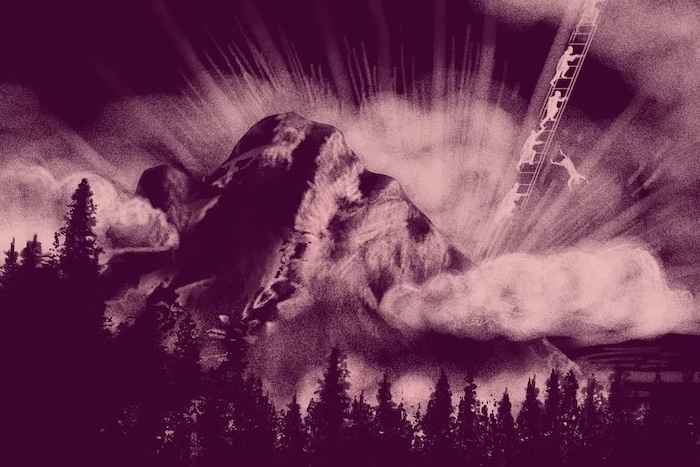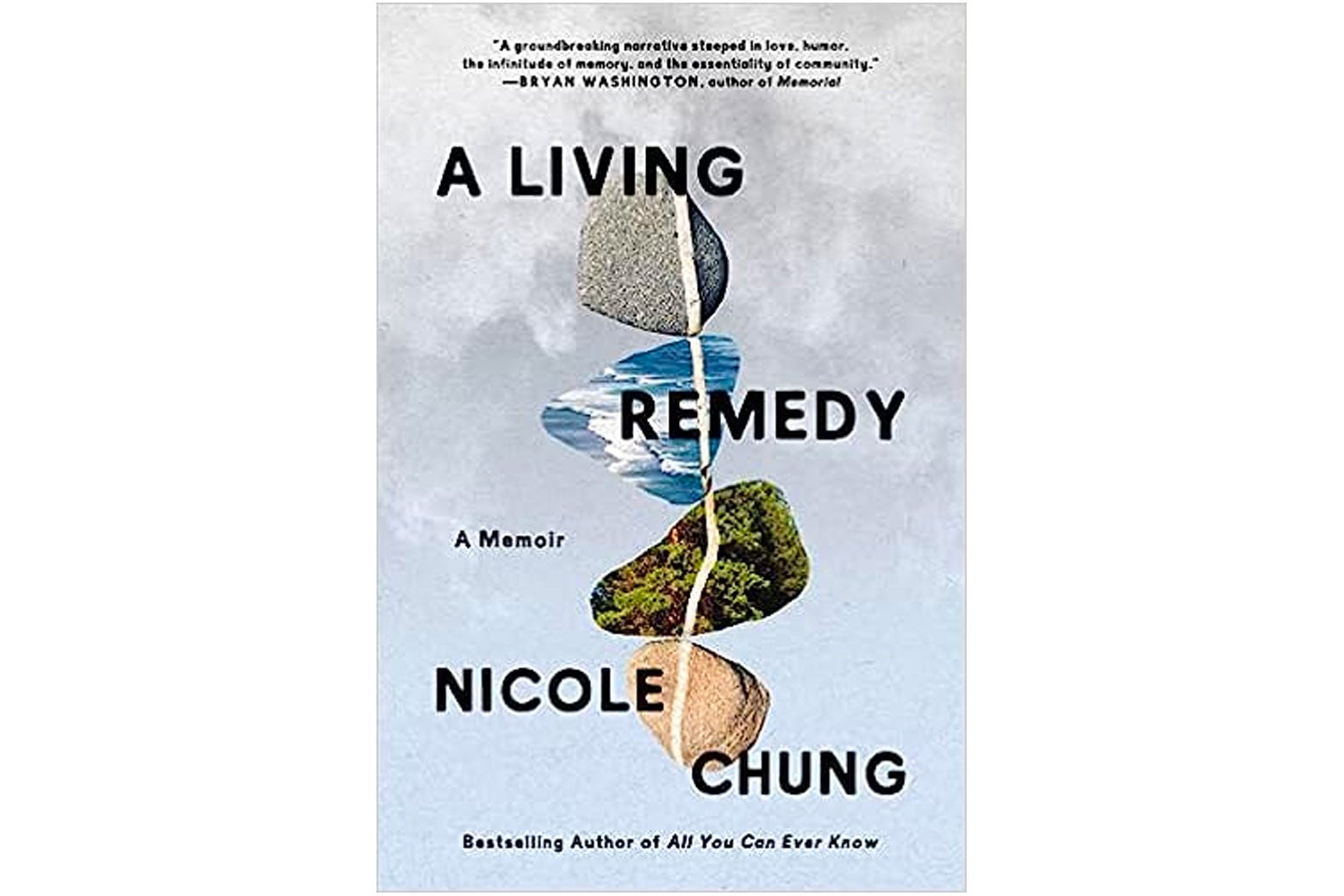— If my father knew his death was imminent, why didn’t he warn us?

By Nicole Chung
Nicole Chung is a Slate Care and Feeding columnist and the author of the new memoir A Living Remedy, from which this essay was adapted.
There are so many things you do for a person after they die, things they don’t need—the living do. Rituals, memorial services, acts of public mourning are all ways of honoring the person we loved, intended to bring us comfort as well. After my father died, I welcomed the chance to work on his obituary, look for photos for the memorial display, find something suitable for my children to wear to the funeral. I even found some strange consolation in my attempts to explain the unexplainable to them, because these were all duties to manage, tasks I could do. As long as I had responsibilities, I didn’t have to sit with the wrathful stillness of grief.
In the end, however, there were few preparations to throw myself into once I got home to Oregon, because my parents’ friends were already hard at work on their behalf. In their hands, the service and burial would be exactly what my mother wanted. The choir knew their parts by heart. There was no need to hire a caterer, because everyone was bringing a dish to share. A craftsman in the parish was working on the casket and refused to accept payment for it.
A number of items went into my father’s casket to be buried with him: a cross, also made of wood and small enough to fit in one of his hands; a white cloth draped across his forehead, representing the crown of victory he had earned for running his earthly race, adorned with the prayer Holy God, Holy Mighty, Holy Immortal, have mercy on us; and an icon of the Ladder of Divine Ascent, a 12th-century monk’s rendering of St. John Climacus’ treatise on the 30 steps monastics might progress along in order to reach Christ, who awaits the faithful at the summit, his once-pierced hands outstretched.
I had never been to an Orthodox Christian funeral before, but my mother had told me it was a beautiful liturgy. With my father’s siblings unable to travel and my mother’s largely absent, it was their parish community that drew together to mourn and bury him. Many people approached before the service to tell me how much they had loved my father. As happens at all open-casket funerals, everyone told my mother that Dad looked really good for being dead. “They did a great job on him,” she agreed.
During the service, my parents’ priest spoke of the daily pain Dad had lived with and how, in the end, he’d allowed this suffering to bring him closer to God. Of course, he couldn’t know the day or the hour. But he knew he would soon meet our Lord, and he prepared for that meeting. This, he concluded, is why my father ultimately knew peace at his death: It did not find him unready.
If that was true, I thought, why hadn’t my mother and I known? Had my father truly spent the past weeks, maybe even months, preparing to die? If he’d known his death was imminent, why didn’t he warn us? I stared at him in his casket, and the sudden flare of anger I felt was so unlike sorrow that I let myself take momentary refuge in it. If you really knew and didn’t tell us, that was a real dick move, Dad.
When we approached to say our final goodbyes, Mom put her arm around my shoulders, her solid warmth a familiar comfort. “Don’t despair,” she told me. “This is our hope in the resurrection.” The words might have upset me coming from anyone else in that church, anyone else in the world. But I felt her sorrow as something deeper and more powerful than my own, and couldn’t help but feel awed by her abiding faith in what she saw as my father’s victory over death. She was a warrior, even in grief.
Though raised in a devout Catholic family, I was no longer a regular Sunday churchgoer. There were too many things that I felt ambivalent about or disagreed with altogether. And as I get older, I’ve found that there are some answers I don’t need. I can’t say whether I will ever again feel as certain of anything as my parents were of the mercy of God or the promise of heaven. But it’s also true that the faith you’re raised in can still move fathoms below the surface, even when your relationship to it has changed beyond recognition. As I held my mother’s hand at the cemetery, watching my father’s casket disappear beneath a layer of earth, perhaps I shouldn’t have been so surprised to feel the old belief stir, bearing me up like a strong current, as undeniable as it was unseen.
My parents became Orthodox Christians after I had left home. My mother converted first—I think my father was less inclined than she to commit his time and energy to another church that might prove unworthy; plus, he liked having his Sundays free, especially during football season. Eventually Mom got tired of going to church alone. You need to find some church that’ll bury you when the time comes, you know.
The first time Dad went with her to church, he halted at the entrance, causing my mother to run into him and ask what he’d seen. He pointed to an icon above the door, one of dozens that filled the walls. “I’ve seen that before!” It was an icon of the Ladder of Divine Ascent. Mom, a recent but fervent devotee of iconography, started to explain its origins, but he interrupted. “I don’t mean I’ve seen the icon before. I mean, I’ve seen that ladder. I saw it right after we moved here.”
She stared at him. “What are you talking about?”
After my parents moved to the area, they would often spend their days off driving with no particular destination in mind, getting to know the landscape. One afternoon they were heading home from somewhere far out in the country, the region’s tallest mountain in full view, when my father glimpsed a ladder beside it, partially hidden by clouds encircling the peak. If he squinted, he could see tiny figures clinging to the rungs, some slowly ascending while others stumbled and fell. He watched in wonder for a few seconds, but when he blinked, the ladder had disappeared.
He didn’t have an explanation for what he’d seen, couldn’t begin to guess what it meant, so he never told anyone. Not until some 30 years later, when, entering a mission church housed in a storefront, he encountered an icon written by a long-dead monk at a monastery on Mount Sinai. “That’s what I saw on the mountain when we were driving home all those years ago,” he said to my mother, who was still looking at him in astonishment. “That’s my ladder.”
Written for monastics and studied by laypeople as well, St. John Climacus’ Ladder of Divine Ascent is an allegorical model of the Christian journey to holiness. The 30 rungs of his ladder represent 30 steps: passions to be mastered, vices to conquer, virtues to attain. Among the virtues extolled is “remembrance of death,” which, he asserted, should inspire us to live as God would wish and do as much good as we can.
“Just as the Fathers lay down that perfect love is free from falls,” he wrote, “so I for my part declare that a perfect sense of death is free from fear. … It is impossible, someone says, impossible to spend the present day devoutly unless we regard it as the last of our whole life.” It’s a charge that reminds me of the old Ash Wednesday exhortation: Remember, man, you are dust, and to dust you shall return. In the Christian sense, these are calls to repentance, but one can also read them as invitations to surrender: to accept our limitations and our mortality; to be prepared, not consumed with clawing fear, for our life’s eventual end; to focus on doing good and not harm, because any day could be our last.
After my father’s death, my mother told me she believed that he often perceived things she could not. She said he was able to grasp certain matters at an instinctive level, to accept them on faith, whereas she was always quick to question or feel frustrated by that which she could not immediately understand. Perhaps this also proved true in my father’s final months: She railed against his illnesses, resented them, as you do when someone you love is suffering. He struggled as well, and maybe at times even despaired, but I think, of the three of us, he was the quickest to understand and accept what would happen. He had to have been feeling his worst in the weeks before he died, yet when we spoke, he seemed so calm that I could almost forget how much he was enduring.
I couldn’t understand it after he died, of course, but then I am much more like my mother: I hated that he was in pain, blamed myself for not being able to help, yet could never manage to convince myself that he would die. If he had told me he was about to die but did not dread it—because he was “remembering death,” or because he had somehow found strength in something far beyond his own fear—I would not have wanted to hear him. I would have wanted him to fight. I would have denied him that peace until the end.

Maybe our refusal to accept his suffering, accept what it meant, is why he didn’t see fit to tell my mother and me. Or maybe, she later theorized, laughing and crying at once, he wanted to spare us the knowledge: It might have been the one truly noble act of his life.
By then, I was afraid of losing her, too. I didn’t know what to believe. I still don’t know what I want to believe. In my memory, my father wasn’t prone to hiding the truth in order to comfort others. But neither was he prone to visions. Was it really there, the ladder he saw that day, propped up against the snowcapped summit? Of course it wasn’t. I am sure that he imagined it. But I can’t claim to know what it means that he did.
Complete Article ↪HERE↩!
